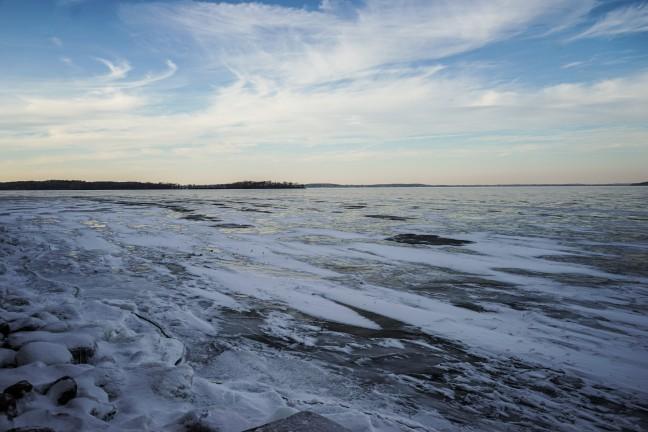The University of Wisconsin Sea Grant Institute awarded its 2018-20 grants in early April with a goal to increase awareness of the importance of the Great Lakes to Wisconsin’s economy as well as the quality of life.
These projects vary from research regarding E. coli presence on beaches to encouraging aquaculture growth within the state. Research is being conducted on eight different UW campuses across the state, including UW.
The grants were awarded through a competition funded by the Sea Grant Institute. There were 16 new projects being funded as a result of this competition.
There are also three projects that are being continued, such as research at UW involving green infrastructure effects on coastal catchments in urban areas. These projects are connected to the Sea Grant Institute by annual reports which are sent to the Institute, as well as interactions with the Sea Grant Institute’s communication department.
Office of Sustainability to give out $50,000 through Green Fund
The new projects are more oriented to research regarding the Great Lakes region, as the Great Lakes play a key role in Wisconsin, Jennifer Hauxwell, director for research at Sea Grant Institute, said.
“The Great Lakes region [also] supports 1.5 million jobs,” Hauxwell said. “This is in the shipping, mining, manufacturing, fishing, tourism and agriculture sectors.”
While being focused on the Great Lakes region, many individuals in central Wisconsin will still see the benefits from this research, Hauxwell said.
Since the U.S. imports 90 percent of its seafood, Hauxwell said looking for ways to promote healthy, local seafood is one of the Sea Grant Institutes goals. This is something that can directly benefit central Wisconsin, as many of the aquaculture facilities are located inland, she added.
One of the funded studies at UW-Milwaukee is done in regards to E. coli presence on beaches, specifically the South Shore beach in Milwaukee.
This research is being headed by UW-Milwaukee professor Sandra McLellan. While this study is focusing on this Great Lake beach in particular, McLellan mentioned how the information learned can be extrapolated to other beaches around Wisconsin, and the South Shore beach can be used as an example.
With beach closures being an issue for tourism along the Great Lake region in Wisconsin, the research being done can help management think about their beaches and explore their options. With this in mind, South Shore beach can become a model beach for coastal beaches across the state, McLellan said.
The studies on the South Shore beach will be able to bring the consequences, whether positive or negative, of management decisions to light and allow people to make more informed decisions, McLellan said.
“Our goal is really to bridge science and policy,” McLellan said. “The more general citizens learn about the benefits of sustainability, beyond just the environment for the environment’s sake, I think they would be more willing to invest in or support those kinds of endeavors by the community.”
UW students create biodegradable materials to clean polluted water, air
McLellan also said how the general population has become more aware of the environmental issues and how the base understanding of these issues has risen over the past decade.
It’s what’s in someone’s backyard that plays a role in what they care about, McLellan said.
Connecting the environmental problems to things that affect individuals personally is one of the ways to get individuals to become involved, McLellan said. It allows for individuals to see the issues as it affects them, and become more willing to learn about sustainability.
Dane County aims to solve local issues through $40,000 program in partnership with UW
The Sea Grant Institute aims to increase awareness of the benefits the Great Lakes have for the state of Wisconsin, and why Wisconsinites need to be more aware of them. All of the projects are important to Wisconsin residents, as sustainability is key for maintaining our Great Lakes, Hauxwell said.
“We have a responsibility to protect these waters, and we have a lot of work to do,” Hauxwell said.
Sustainability has a strong impact on Wisconsin, as the water, especially the Great Lakes play a key role in our economy, as well as the Wisconsin identity, Hauxwell said.
As the population of Wisconsin increases, so do the issues with our water, so maintaining water sources becomes a shared responsibility, Hauxwell said.
“We owe it to future generations, we owe it to ourselves,” Hauxwell said.

















